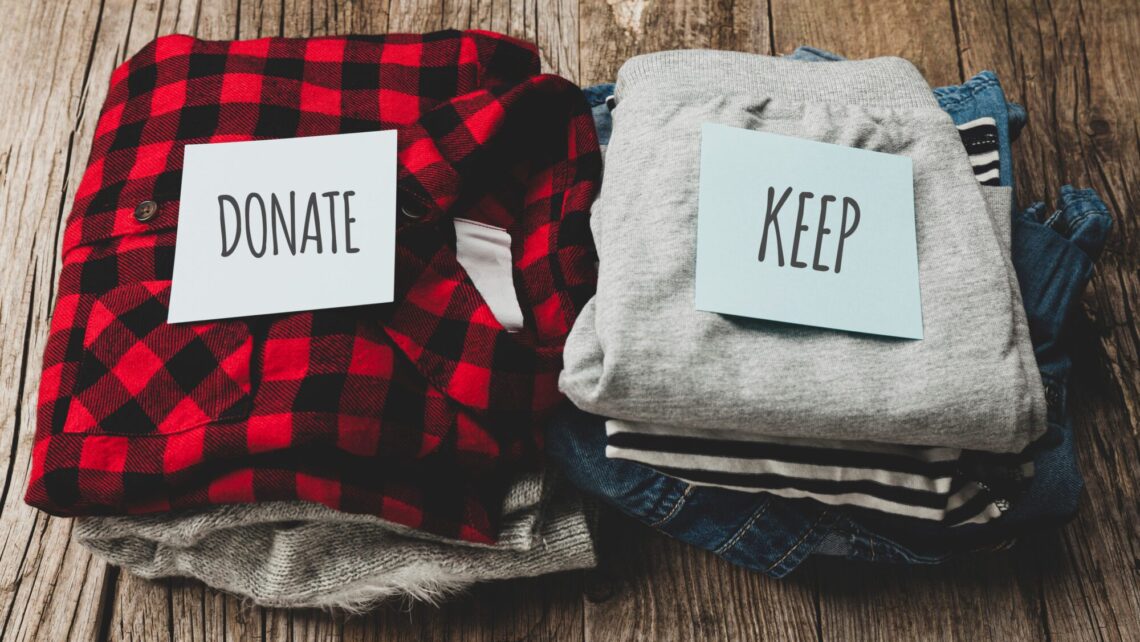Why Decluttering Improves Your Mental Health
Some people believe that “mess equals stress” and do their best to keep clutter to a minimum. Others may be caught in a spiral of not knowing what to keep and what to toss, and then end up not doing anything because they feel overwhelmed. But if you’re striving for more balance in life, research states that decluttering helps your mental health in many ways.
Benefits of Culling Clutter
The origin of the word “clutter” dates back to the 1500s, initially as “to form clots, to heap on.” Applying a more modern view of that definition might be that clutter “clots” or “clogs up” your ability to think clearly and avoid distractions.
In a podcast for the American Psychological Association, Deacon Joseph Ferrari—a professor of psychology at DePaul University in Chicago—shared his insights regarding clutter, which he defines as “an overabundance of possessions that collectively can create chaos and disorderly living spaces.” This includes digital clutter, too, including unnecessary files, emails, photos, and other data.
Ferrari studies the psychology of clutter, including why we accumulate it, how it affects our mental health, and the link between clutter and procrastination. “We found that there’s a negative correlation between life satisfaction and clutter. So the more clutter you have, the lower people report life satisfaction and greater stress.” Some studies indicate women may be slightly more inclined to being bothered by clutter because they feel a greater responsibility for keeping a clean home. But they’re negatively affected as a result, because this burden raises cortisol levels.
By removing unnecessary items and organizing your living or working space, you create a more peaceful atmosphere that fosters calmness and clarity. This sense of order helps you feel more in control, reduces anxiety, and provides a mental respite from the chaos of daily life.
The connection between clutter and peace of mind is also rooted in the way our brains process visual information. A cluttered environment bombards the senses with stimuli, making it harder to relax and concentrate, and also affects working memory. This constant state of sensory overload often causes feelings of anxiety, depression, frustration, and stress.
On the other hand, a tidy, well-organized space allows your mind to rest, leading to improved focus and productivity. When our surroundings are neat and orderly—or at least not overtly cluttered—and we can find what we need when necessary, we’re better able to manage our thoughts and emotions, contributing to a greater sense of mental well-being.
But what about people whose creative pursuits are, believe it or not, enhanced by disorder? Well, the bottom line is that clutter doesn’t affect them like it might other individuals. Only you know for sure if this applies to you.
6 Ways to Eliminate Clutter Bit by Bit
Another benefit of decluttering is that it gives you a sense of accomplishment and empowerment. The act of organizing and purging items you no longer need is a proactive step toward taking control of your environment and, by extension, your life.
But why is it so hard? Ferrari cites numerous reasons, including emotional ties, which can be both positive and negative, especially if you associate good times with a particular item. Certain things can also prompt triggers you don’t want to deal with. There might also be multiple users in a household, each with a different view of “the stuff” and what to do with it, especially heirlooms other members of the family don’t want. “Then there are three lacks: lack of time, lack of resources, and lack of ability,” he says, which leads to procrastination.
So, if it’s time to make a change, here are some common suggestions various experts recommend for removing clutter.
- Start small. Begin with a single drawer, shelf, or small area. Focus on decluttering one manageable section at a time to avoid feeling overwhelmed. Set a timer for 15-20 minutes and commit to decluttering within that time frame, gradually building momentum.
- Sort and categorize. Create categories such as keep, donate, recycle, and trash. Sorting items into these categories can streamline the decluttering process. Use boxes or bags to collect items in each category, making it easier to move them to their appropriate destinations.
- Be prepared to be emotional. Counselor Michaela Murphy says, “Each item we possess carries with it a story, a memory, a level of burden, or an emotional resonance that shapes our environment and influences our well-being, for good or for bad.” She offers some tips for balancing the emotional journey of the process.
- Do it regularly. Schedule regular decluttering sessions, such as weekly or monthly, to keep your space organized and prevent clutter from building up again. Make decluttering a routine part of your cleaning schedule, treating it as a maintenance task rather than a one-time project.
- Utilize storage solutions. Invest in storage solutions such as bins, shelves, and organizers to keep items neatly contained and easily accessible. Label storage containers to quickly identify contents and maintain order over time.
- Adopt the “one in, one out” rule. For every new item you bring into your home, commit to removing one existing item. This helps prevent the accumulation of excess belongings. Apply this rule to various categories, such as clothing, books, or kitchen gadgets, to maintain balance in your space.
If this approach doesn’t work for you, consider working with a therapist to better understand what’s figuratively underneath all “the stuff”—and also hire a professional organizer.
More Methods For Improving Mental Health at Seabrook
At Seabrook’s four award-winning addiction treatment centers in New Jersey, our board-certified professionals provide numerous techniques to help you live better in mind, body, and spirit. We promote holistic therapies along with evidence-based solutions so you can create a full and healthy life. Talk with a member of our admissions team today to learn how this approach might provide the clarity you need.




